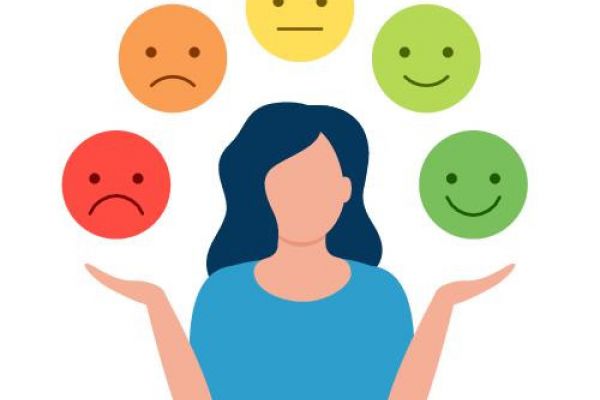In this part of the series on executive functioning skills I am going to focus on the EF skill of emotional control for women with ADHD
What does “emotional control” mean?
Emotional control is the ability to manage and control your emotions so you can complete a task or achieve a goal. In other words, it is the ability to stay calm when you are feeling overwhelmed or anxious or being able to bounce back from a setback without letting your emotions take over. Women with ADHD who struggle with emotional control are commonly negative, worry, fear, resentment, and sadness. Regardless of the feeling, emotional control helps keep them in check.
Why is keeping emotional control in check important?
There are some obvious reasons why maintaining control over your emotions is an important skill. The inability to handle negative or stressful emotions may cause you to become ineffective at home or work. When you are in an emotional crisis, your brain can focus on little else, especially tasks that require you to focus on and remember important details. You are unable to be flexible or innovative in your thinking when your brain has been hijacked by negative emotions. If this is a regular occurrence, it will prevent you from completing your tasks and stop you from achieving your goals.
How can you improve your emotional control?
There are a number of skills that can help you self-regulate your emotions.
Know when you lose control- When a woman with ADHD gets angry, frustrated or upset, it is important to have some standard warning sign and what situations trigger or set your anger, frustrations when things don’t go well, being told what to do or being lied to. Here is a list of signs when you start to get angry or frustrated
- face feels hot or red
- Mind goes blank – hard to think
- Get quiet
- Clench fist or jaw
- Heavy breathing
- Starting to sweat
- Feeling a headache
- Stomach feels sick
Stop & Think- Have you ever blurted something out and wish you hadn’t. Or have you gotten angry over something that you just didn’t think through? When you feel like you are going to lose control, try to picture a stop sign with a little signal so you can help yourself put on the brakes and slow your thinking down, just enough so you can make the right choice. Some questions and thoughts to consider
- What is the actual problem
- How big is the actual problem? Is it a glitch or is it really a big deal
- How can I solve the problem
Communicate Effectively- One way to manage your emotions and how you communicate with others is to use I statements. In short, these statements communicate how you feel without placing blame on anyone else. To write a statement, you need to identify
- How you feel (specific emotions)
- When you feel it (don’t place blame on anyone)
- Why you feel that way
- What you’d politely like someone do the next time
Anger Is Normal? Remember that anger is a normal emotion. It is completely natural to feel angry, upset or frustrated at times. It becomes an issue when you can’t effectively manage that anger. That means damaging property or even hurting others physically. Instead of letting out your anger in negative ways, let’s consider some strategies for effectively managing your anger
- Be solution focused– rather than dwelling over how anger your feel, stop and think of a possible solution
- Breath- research has shown that simple breathing is one of the most effective strategies to calm your nerves and get you back on track
- Use self-talk– tell yourself that everything is ok and that you will get through this; these positive affirmations can help you when you are feeling overwhelmed or frustrated
- Ask for personal space – if you notice that you tend to get into other people’s faces and personal space, it is probably a good idea to ask for some space by yourself when you are angry
No matter the reason for the emotional volatility, the good news is that we can learn better self-regulation. We can all benefit from learning strategies to control our emotions. Emotional regulation is the ability to better control our emotional state.
